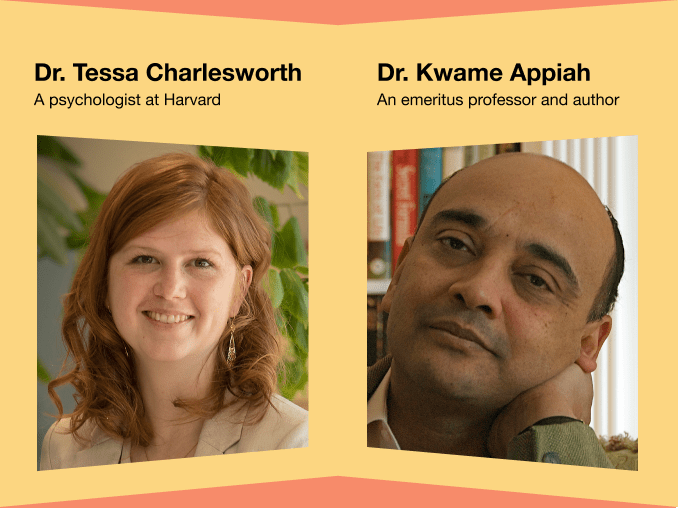In the diverse tapestry of human beliefs and philosophies, the Bahá’í Faith emerges as a profound spiritual system that seeks the advancement of humanity through unity, peace, and understanding. Central to its teachings are concepts that challenge biases inherent in societal structures, profoundly relevant to discussions surrounding events such as those witnessed in Charlottesville, Virginia. Reflecting upon the intersection of Bahá’í teachings and the scientific understanding of bias can illuminate pathways toward a more just and equitable world.
The events in Charlottesville serve as a clarion call to examine deep-seated prejudices that manifest in fervent displays of division and hatred. The origin of bias, as a cognitive phenomenon, often stems from historical, social, and psychological undercurrents. However, the Bahá’í Faith posits that the eradication of such biases is essential for the flourishing of civilization. In navigating these labyrinthine issues, one finds that the Bahá’í teachings offer not just spiritual guidance, but also a framework for understanding the complexities of human interaction.
At the heart of Bahá’í teachings is the principle of unity in diversity. This tenet advocates for the recognition of the intrinsic worth of every individual, informing us that humanity is a single family bound by the interconnectedness of life. The acknowledgement of our shared humanity is a formidable antidote to bias. In contexts similar to Charlottesville, where polarized views erupted into conflict, embracing this principle can foster curiosity and openness rather than animosity and fear.
Delving into the scientific realm reveals that biases are not merely personal failings but are deeply embedded within societal constructs. Research in psychology elucidates the mechanisms of implicit biases—unconscious attitudes or stereotypes that influence our perceptions and behaviors. The Bahá’í teachings, particularly the emphasis on justice, serve as a powerful lens through which these scientific findings can be scrutinized. Justice, as articulated in Bahá’í writings, transcends mere fairness—it embodies the aspiration for truth and the holistic well-being of society.
One can appreciate how this perspective encourages individuals to engage with the world around them through a lens of inquiry rather than judgement. Encouraging a shift in perspective, Bahá’í principles invite adherents to examine their assumptions and confront biases head-on. Such self-reflection is critical, as it cultivates the capacity for empathy and understanding, key components in dismantling the pervasive cycles of discrimination that mar society.
Engaging with the teachings of Bahá’u’lláh, the founder of the Bahá’í Faith, one is reminded of the transformative power of love and compassion. This core principle challenges the very foundation of bias, fostering a vivid exploration into the dimensions of collective human experience. The paradigm shift that occurs when one embraces compassion serves to dissolve barriers and invites collaboration in the pursuit of a more harmonious existence.
Furthermore, the Bahá’í emphasis on education as a fundamental human right drives the narrative toward a broader understanding of bias. The process of education is not exclusively academic; it encompasses moral and spiritual development as well. This holistic approach is instrumental in cultivating critical thinking and fostering an atmosphere where individuals are naturally inclined to challenge prejudiced notions. By promoting inclusive educational initiatives, society can graduate a generation of individuals equipped to confront biases with courage and integrity.
Intersectoral collaboration is another salient theme within Bahá’í teachings. This notion beckons diverse voices from various sectors—education, justice, and community engagement—to unite in the face of bias. In responding to challenges faced by marginalized communities, collaborative efforts can bolster advocacy and foster inclusion. This integrated approach effectively broadens the discourse surrounding bias and bequeaths communities the tools necessary for transformative change.
Inclusivity, as posited by the Bahá’í teachings, calls for a reevaluation of societal structures that propagate bias. The inception of policies grounded in equity—focused on transcending systemic inequities—is paramount. By employing a Bahá’í lens, communities can engage in critical discussions about structural reform and justice, shifting the paradigm from mere tolerance to genuine acceptance and love. Such policy shifts are instrumental in fostering environments where diversity is celebrated and biases are confronted.
Moreover, the concept of consultation within the Bahá’í framework serves as a methodological foundation for collective decision-making. This practice underscores the importance of listening to varied perspectives, which is particularly salient in juxtaposing the scientific understanding of bias with lived experiences. By prioritizing dialogue that values diverse voices, societies can cultivate environments of trust and collaboration, essential for tackling biases effectively.
In conclusion, the intersection of Bahá’í teachings and the scientific inquiry into bias presents a rich landscape for contemplation and action. Through the amalgamation of spiritual principles and empirical understanding, one can navigate the complexities of bias and its ramifications in societal contexts similar to those seen in Charlottesville. The promise of this interdisciplinary dialogue not only piques curiosity but also provides a roadmap toward a paradigm shift—a transition from division and conflict to unity and comprehensive understanding. Ultimately, the teachings of the Bahá’í Faith inspire individuals and communities alike to transcend inherent biases, nurturing a world wherein the beauty of diversity is embraced and the oneness of humanity is celebrated.
